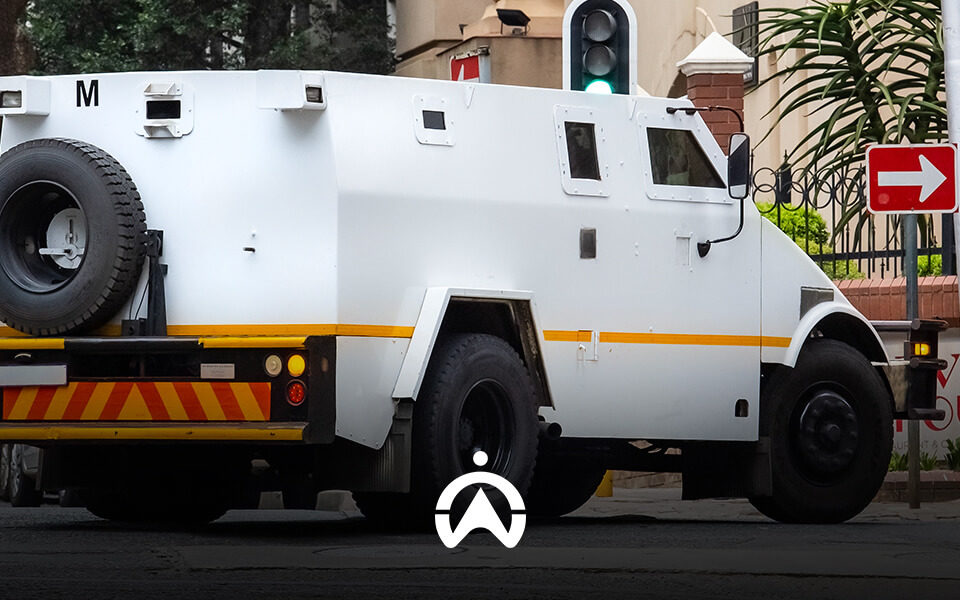Thinking About Fleet Leasing? See the Advantages of Fleet Technology
Did you know that not every fleet owns the vehicles they use?
Though it may sound unlikely, it’s actually an instance of fleet leasing. Think of it as leasing a car, but on a bigger scale and for a longer time.
Intrigued? Read on to learn more about fleet leasing, how it works, and whether you should consider leasing your fleet’s vehicles.
What is fleet leasing?
Fleet leasing refers to an agreement between a business and a fleet owner, where the fleet gets access to fleet vehicles in exchange for a monthly fee without taking ownership of them. This may sound similar to renting passenger vehicles but unlike typically brief rental periods, fleet leases run for about 2-5 years.
Depending on your company’s needs, fleet leasing can involve many vehicles, including trucks and vans.
What are the different types of fleet leasing?
Fleet leasing can be open-ended or closed-ended. What do we mean? Let’s explore these in more detail:
Open-end leasing:
Open-end leasing is when the fleet owner is responsible for the vehicle’s residual risk, meaning there’s a chance that you’ll owe more money than the car is actually worth at the end of your lease. This happens when the vehicle depreciates faster than expected, and at the end of the lease term, the fleet manager needs to either purchase or return the vehicle. If the vehicle’s value exceeds the residual value, the fleet manager can also sell it for profit.
Think of open-end leasing, like renting a car for a long period but with a twist. While you agree to make scheduled repayments, you and the company share responsibility for the vehicle’s final value.
3 key characteristics of open-end fleet leasing include:
- Lower monthly payments but higher risk: With open-end fleet leasing, your monthly payments are lower. However, you face a higher risk because you are responsible for any difference between the estimated residual value of the vehicle and its actual future market value.
- Unlimited mileage: Unlike closed-end leasing, you have access to unlimited mileage, making it an ideal choice for fleets with higher, more unpredictable mileage requirements.
- Maintenance and repairs: As the fleet manager, you are responsible for the maintenance and repairs of the leased fleet vehicles.
Now that we have a clearer understanding of open-end leasing, let’s take a look at its advantages and disadvantages:
Advantages of open-end leasing:
- Initial costs are lower: Monthly repayments are typically lower, giving you the ability to free up funds for other business needs.
- Flexibility in terms of mileage: There are no fixed mileage limits, allowing businesses the freedom to handle the unpredictable driving needs and patterns that can come with fleet operations.
- The opportunity for ownership: Fleet managers can acquire these vehicles at the end of their lease period.
Disadvantages of open-end leasing:
- Increased management burden: Managers must be more involved in basic fleet admin tasks, including maintenance and vehicle repairs.
- Unpredictable costs: The final cost of the leased vehicle’s value is dependent on the market, which makes budgeting a challenge.
Closed-end leasing:
Closed-end leasing offers more predictability than open-end leases. Unlike open-ended leasing, where the fleet manager is responsible for the vehicle’s residual risk, close-ended leasing requires the provider to handle this responsibility. So, when the lease term ends, the vehicle can be returned with no worries about selling or any potential depreciation due to a set residual value. In short, closed-end leasing is all about predictable costs and usage within agreed-upon terms.
3 key characteristics of closed-end leasing:
- Fixed monthly payments: These are fixed for the whole lease term, so you don’t have to worry about fluctuating market values.
- Specific mileage limits: You need to stay within these limits, and if you exceed them, you must pay excess charges per kilometre
- You don’t have to worry about the final value: The vehicle’s final value is not your responsibility as long as it is returned in good working condition.
Sounds pretty straightforward, right? Now, let’s look at the advantages and disadvantages of this fleet leasing option.
Advantages of closed-end leasing:
- No maintenance worries: The lessor is usually responsible for vehicle maintenance and repair during the lease term, which saves your business time and money.
- More chances for upgrades: Due to the shorter lease periods, you can keep your fleet current, ensuring you always have access to the latest vehicle technology.
- Simplified budgeting: Due to the fixed monthly repayments, you can accurately estimate your fleet’s budget and streamline your financial planning.
Disadvantages of closed-end leasing:
- Higher monthly repayments: Due to fixed repayments and the lessor taking on more risk, monthly payments can be slightly higher compared to open-end leases.
- Mileage restrictions: Mileage restrictions can be detrimental to a fleet’s budget, as exceeding them leads to costly charges.
- No ownership opportunities: Unlike open-end leases, businesses don’t have the option to purchase the vehicles they’ve used at the end of their lease period.

Open-end vs closed-end fleet leasing
Let’s take a look at some key differences between the two fleet leasing options:
The top 4 need-to-know benefits of fleet leasing
Fleet leasing can be beneficial for a fleet business in various ways. Let’s explore some of these:
- Improved vehicle maintenance: Depending on which type of fleet leasing agreement you choose, your fleet lessor can include maintenance repair services in the lease agreement, which reduces labour costs and frees up resources for other business needs while also ensuring that vehicles are working well.
- Increased flexibility: Fleet leasing allows companies to easily adjust the size and composition of their fleet based on varying demands, such as peak seasons or changes in the number of employees. This flexibility equips fleets for their specific functions, increasing profits and saving money during off-peak seasons.
- Reduced administrative responsibilities: Fleet leasing companies handle many of the administrative tasks associated with managing a fleet of vehicles, such as vehicle registration and licensing. By outsourcing much of the vehicle monitoring, maintenance, and compliance to the leasing company, fleet managers can reduce operational strain and free up resources that support fleet growth.
- Scalability: Scalability in fleet leasing is a fleet’s ability to efficiently expand its capacity and capabilities by adding vehicles and enhancing operational processes to handle more tasks without compromising on efficiency. By eliminating large upfront costs and management burdens, fleet leasing can help unlock flexibility to upscale or downscale a fleet as needed.
The secret to optimised fleet leasing: It’s fleet management
Fleet management is the process of keeping a fleet of vehicles running smoothly. It involves various tasks that enhance the fleet’s efficiency, reduce its running costs, and promote its overall safety. Fleet managers oversee these goals and make management decisions, including vehicle acquisition, maintenance, fleet monitoring and fuel management.
How can a fleet management system help simplify managing a leased fleet?
A state-of-the-art fleet management system plays a significant role in successfully running a leased fleet. Let’s see exactly how:
- Data-driven decision making: Fleet management facilitates easy access to and interpretation of large volumes of data. Take John, for example, who manages a leased fleet of 15 vehicles. Keeping track of various fleet metrics, including fuel consumption and mileage for all these vehicles can be challenging. What John needs is a fleet management system that can automatically collect and analyse all data related to vehicle maintenance, fuel consumption and driver behaviour. By knowing exactly how your fleet is operating, you know what changes need to be implemented. This is important for a leased fleet, where every decision can impact your profitability and the amount you’ll have to pay at the end of your lease period.
- Live GPS tracking: Fleet management provides comprehensive insight into vehicle performance and management using GPS tracking software. By collecting and storing data on speed, trip, distance, and vehicle location, fleet managers not only know a vehicle’s location at all times, but they can also see the exact route their vehicles travelled, how long each trip took, and gain insights on driver behaviour. Look at this from John’s perspective, who no longer has to call the drivers of every leased fleet vehicle to know exactly where they are or what trips they’re on. This helps managers keep track of vehicle mileage, which is crucial for closed leasing with a mileage limit.
- Proactive fleet maintenance: Fleet management makes it easier for fleet managers to create maintenance strategies specific to their fleet’s individual needs. Keeping your fleet well-maintained ensures you don’t experience unplanned downtime due to damaged vehicles, helping you save on unnecessary repair costs. This is crucial for a leased fleet, especially if you opt for a leasing option where you are responsible for vehicle maintenance.
- Monitoring driver behaviour: Fleet management makes monitoring driver behaviour a simple task, which is crucial due to its impact on fleet safety and productivity. Dangerous driving behaviours like harsh braking and sharp cornering increase mileage and fuel consumption and the risk of unplanned downtime due to accidents, which is why driver behaviour monitoring helps ensure that your leased fleet remains safe and effective.
- Streamlining cost management: A fleet management system enables you to keep track of every cent your fleet consumes, helping you pinpoint potential reasons for cost drainages, whether it be due to increased fuel consumption or damaged vehicles. This is important for fleet leasing options, where you are responsible for most fleet costs.
Give your leased fleet more savings, efficiency and productivity with Cartrack Nigeria
Cartrack Nigeria has a wide range of solutions to simplify managing a leased fleet, helping you achieve convenience and activate ultimate efficiency. Let’s explore these solutions:
- GPS tracking: Gain full visibility of your leased fleet with Cartrack’s GPS tracking technology and determine your vehicle’s exact geographical location in real time. Our GPS tracking also gives you access to Cartrack’s stolen vehicle recovery service. With an above 90% stolen vehicle recovery rate, Cartrack Nigeria responds swiftly to vehicle theft or hijacking, increasing your chances of vehicle recovery.
- Route optimisation: Unlock the best routes for your leased fleet with Cartrack’s route optimisation. Available as a part of our Delivery feature, this tool looks at real-time traffic and weather conditions to find ideal routes for your drivers. Improve fleet efficiency and fuel consumption by choosing effective routes based on real-time data, which helps you lower overall costs for your leased fleet.
- Fuel monitoring: Know exactly how much fuel your leased fleet vehicles consume with Cartrack’s fuel monitoring system. By giving you real-time insights into fuel consumption, you can quickly detect the source of fuel drainages and act against fuel theft and fraud. Our fuel fraud detection technology matches fuel receipts with your vehicle’s locations and fuel status, helping you reduce fuel cost drainages and improve operational efficiency.
- Driver monitoring: Enhance fleet driver safety and behaviour with Cartrack’s driver monitoring system, equipped with a range of next-level hardware and software solutions to help you monitor driver behaviour.
– Cartrack’s Advanced Driver Assistance System (ADAS) is designed to alert your drivers of potential road hazards, helping them avoid obstacles and prevent accidents in real time.
– AI LiveVision cameras give your drivers access to real-time, audible alerts on dangerous and distracted driving behaviours, including smoking, excessive speeding, and yawning, which helps them quickly correct their behaviours and prevent accidents.
– Driver scorecards give you detailed reports on each of the abovementioned harsh driving behaviours, allowing you to see when an incident occurred and who was driving, and use these insights to empower and train on safer driving practices.
- Cost management: Don’t miss payment and registration deadlines ever again with Cartrack’s MiFleet software. With the ability to receive reminder alerts, our cost management solution makes keeping track of all your fleet expenses a breeze, whether it be vehicle permits or fuel costs. Not only does this help you improve your fleet compliance, but it also reduces admin time and eliminates human error that comes with manual calculations, helping you ensure your leased fleet isn’t costing you more than it should.
- Preventative maintenance: Spot potential maintenance issues before they become more costly with Cartrack’s preventative maintenance. Our software uses advanced analytics to alert you on potential vehicle maintenance issues, such as damaged brake pads and low oil levels. This proactive measure uses historical data and smart algorithms to create a maintenance plan specifically tailored to your fleet, helping you eliminate unplanned downtime, prevent road accidents, increase fleet longevity, and transform your leased fleet into a well-oiled machine.

Case study: How Cartrack helped Agungrent boost their vehicle renting business
Whether you’re already renting your fleet vehicles or looking to rent them out, Cartrack Nigeria is a solid solution with a proven track record. Take Agungrent, a transportation service provider company specialising in vehicle rental, logistics & trucking of over 6,000 vehicles.
Agungrent found reducing running costs and managing their fleet inventory challenging. They needed a system to help them easily manage their vehicle rental usage, receive vehicle data and reduce overall fleet costs.
Using Cartrack’s mobile application, Agungrent unlocked real-time monitoring of their vehicle’s movements, helping them bill rented-out vehicles more accurately. Cartrack’s fuel monitoring solution also helped them increase their fuel efficiency by up to 30%, and driver and safety reports they now gained access to, helped them enhance their driver safety culture overall.
Here’s what the company’s Operations Manager, Mr. Edi Cahyono had to say:
“Cartrack is a GPS service global provider which offers many features that are very capable and user-friendly, also offers competitive prices tailored to our needs.”
Tackle fleet leasing woes with Cartrack’s superior fleet management solutions
Take managing your leased fleet from time-consuming and frustrating to streamlined and automated with Cartrack Nigeria.
Contact us today, and find out how.




